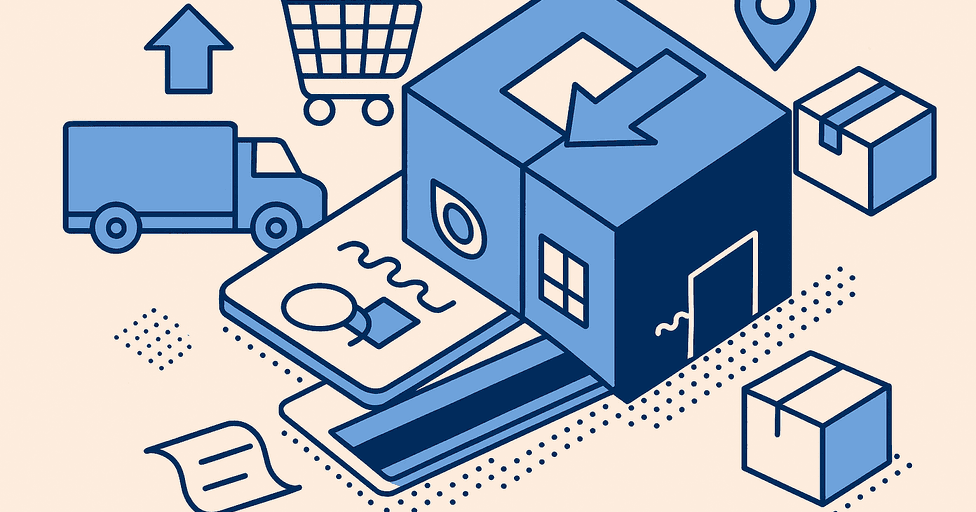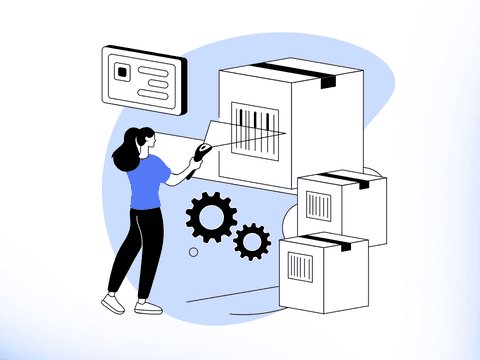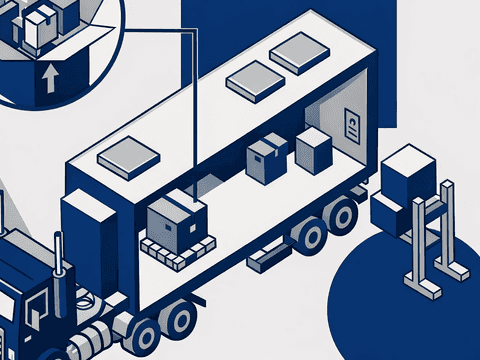When your shipping tools don’t integrate properly, everything breaks. Orders don’t sync, tracking isn’t updated, returns become manual, and your team loses time fixing errors. A basic label provider won’t cut it once you start selling on Shopify, expanding to multichannel retail, or shipping internationally.
You need a shipping integration platform that connects everything—store, carriers, tracking, returns, and support—in one place.
This guide covers the best shipping integration solutions in 2026, their key capabilities, and how to pick the one that actually works for your eCommerce setup.
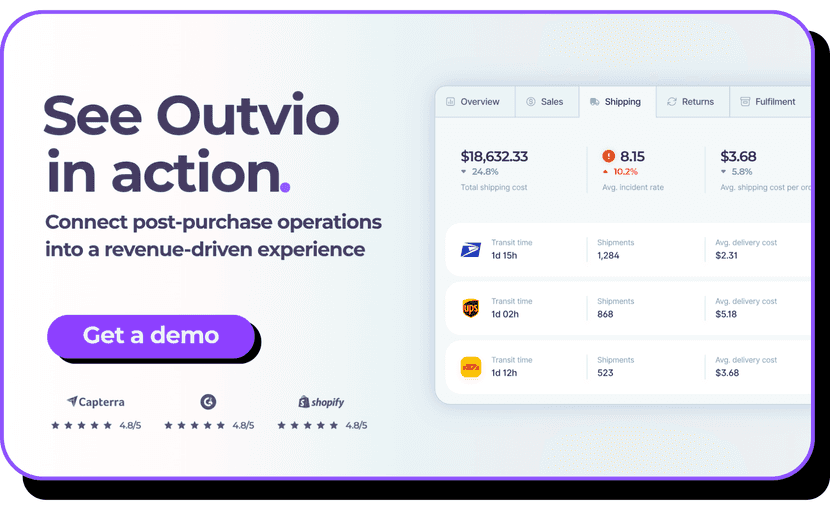
Top-rated shipping integration software for eCommerce
| Platform | G2 Rating | Best For | Notable Features |
|---|---|---|---|
| Outvio | 4.8 | eCommerce that wants it all | Shipping, tracking, returns, exchanges, claims, invoice audit, support |
| Shippo | 4.2 | Small shops with basic needs | Labels, rate comparison, simple API |
| ShipStation | 4.3 | High-volume shipping | Batch labels, automation rules, multi-channel |
| Metapack | 3.8 | Enterprise logistics teams | Carrier performance, SLA tracking, global compliance |
| EasyPost | 4.2 | Tech teams building custom flows | 100+ carriers, full API, no UI |
Capabilities needed in an a shipping software integration
Plug-and-play integrations with your stores and carriers
When you're evaluating a shipping integration software, the first thing you need is native, real-time connections with both your sales channels and carriers. If orders don’t sync instantly or your inventory isn't pushed back to Shopify fast enough, you’ll end up overselling, delaying shipments, and dealing with angry customers.
Native integrations eliminate CSV uploads and manual work and let you add a new marketplace or carrier on the fly without writing a single line of code or stopping operations.
One-click labels, smart rules, smooth fulfillment
If your warehouse staff has to choose the carrier, service, and packaging for each order, everything slows down. A good carrier selection software compares your negotiated rates in milliseconds, applies logic like “if value > €100, add insurance,” and instantly generates the label and customs docs if needed.
That turns a multi-minute manual task into a one-click process, keeps shipping costs low, and lets your team focus on fulfillment, not decision-making.
Post-purchase clarity that keeps customers calm
After the order is placed, your control can’t just disappear. Branded tracking pages that update with every scan, plus tracking notifications or WhatsApp alerts, eliminate the flood of “Where’s my order?” tickets and keep trust high all the way to the doorstep.
Cross-border shipping without the headache
Shipping internationally means dealing with HS codes, taxes, duties, and the very real risk of delays at customs. A proper shipping software module fills in every required field, calculates landed costs if you're using DDP, and sends all customs documents to the carrier electronically before the package even leaves the country.
Returns & exchanges that save the sale
Returns are going to happen—what matters is whether you recover the sale. A self-service portal that creates the RMA and label, suggests the right size or variant, and locks the replacement SKU in real-time can turn a refund into an exchange, without charging you a second transaction fee or forcing the customer to go through endless email threads.
Built-in claims & issue management
And when something gets lost or damaged, you need a single dashboard to file the claim, upload photos, and chase the carrier until you get paid. Without this kind of built-in issue management, lost packages quietly eat into your margins—and no one notices until it’s too late.
Best shipping integration platforms reviewed
1. Outvio
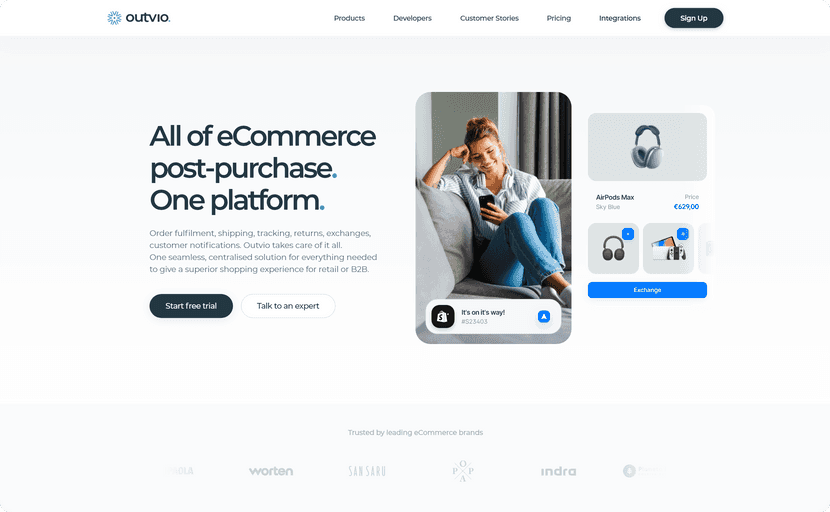
Outvio is a shipping integration software built for modern eCommerce. Unlike a basic label provider, Outvio is a complete platform that connects your store and carriers, automates every step of the shipping flow, and manages the entire post-purchase experience: from fulfillment to product exchanges or support.
It offers all the core capabilities you expect: real-time rate shopping, bulk label generation, smart shipping rules, and automated document handling .It integrates natively with Shopify, WooCommerce, Magento and other major platforms, supports over 100 global carriers, and is fully optimized for multichannel retail.
G2 Rating
What you can do with Outvio:
- Automate shipping with real-time rate shopping, rules, and bulk label creation
- Handle international shipping with customs documents, HS codes, and DDP/DDU settings
- Create branded tracking pages with marketing banners and delivery estimates
- Send proactive delivery updates by email, SMS, or WhatsApp
- Launch a self-service return and exchange portal with product swaps, store credit, or refunds
- Manage claims directly with carriers from one dashboard
- Support customers via chat, ticketing, and full order visibility
- Show product recommendations during tracking and return
2. Shippo
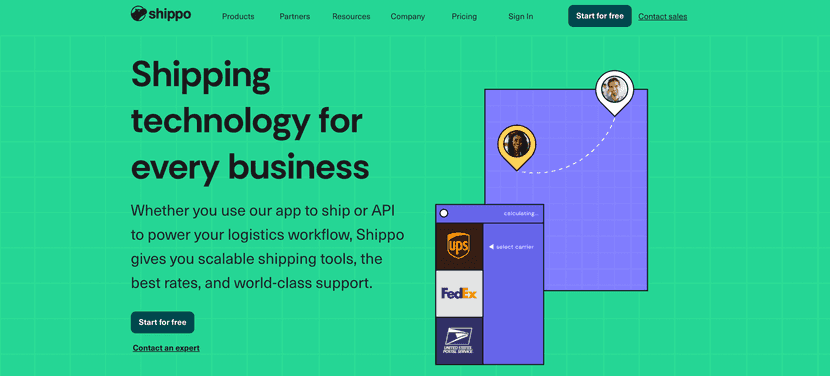
Shippo focuses on label creation and carrier integration. You can connect your store, get real-time rates, and print labels. It supports some automation, but post-purchase features are limited. There’s no built-in interface for returns or tracking customization.
G2 Rating
What it includes:
- Rate comparison across carriers
- Shipping labels and tracking number generation
- Returns setup
- Branded tracking page
- API available for custom workflows
3. ShipStation
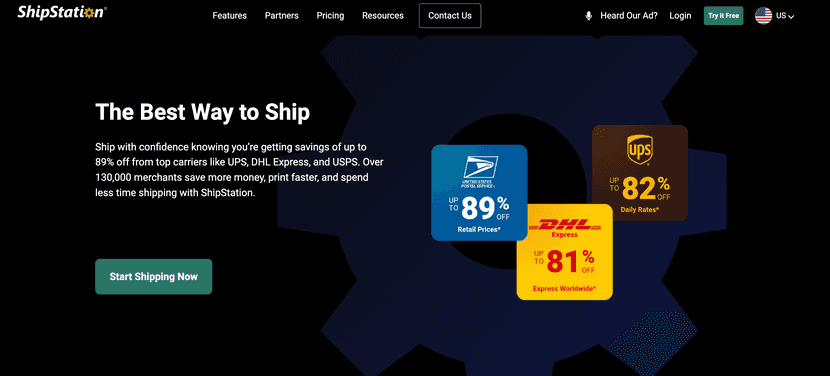
ShipStation supports multi-channel and multi-carrier shipping. It’s strong on fulfillment and batching but weak on customer experience and returns. Many users rely on third-party tools for post-purchase flow.
G2 Rating
What it includes:
- Channel integrations (Shopify, BigCommerce, Amazon, eBay, etc.)
- Supports 40+ carriers globally
- Automation rules for carrier selection, service, tags
- Label creation in bulk
- Tracking numbers and shipping notifications
- Branded tracking
4. Metapack
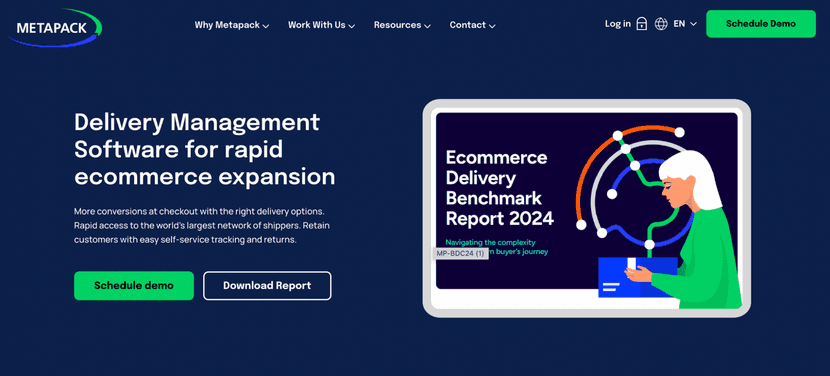
Metapack is designed for enterprise retailers shipping at scale, especially across multiple regions. It focuses on carrier performance, SLA management, and compliance, but lacks customer-facing features. Setup is complex and usually requires IT involvement.
G2 Rating
What it includes:
- Massive carrier library with regional and global options
- Crss-border tools (duties, tax calculations, customs forms)
- SLA analytics and carrier scoring
- Carrier switching logic based on performance
- Returns and tracking require separate integrations Usage-based pricing
5. EasyPost
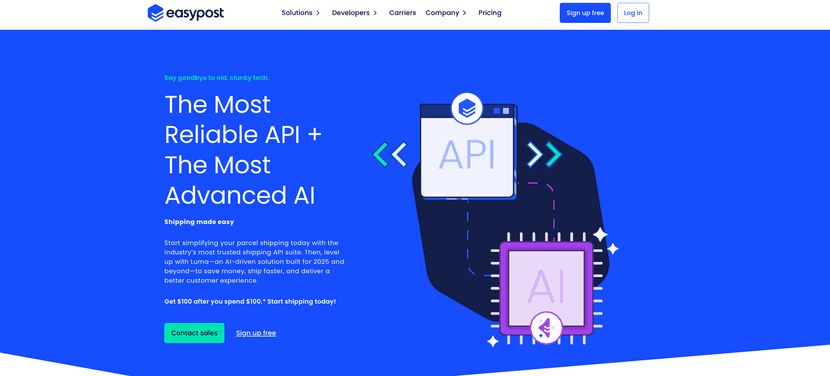
EasyPost is a shipping infrastructure API, purely technical. It gives you full control, but everything must be built by your team. No interface, no pre-built tracking or returns flow. Best for developers or companies building their own logistics stack.
G2 Rating
What it includes:
- Label creation, rate shopping, and address validation via API
- Tracking API with webhooks
- Support for 100+ carriers
- Parcel insurance
- Basic returns and carrier claims (API only)
Why invoice auditing matters in shipping integration
Carrier billing errors are more common than they should be—extra surcharges, wrong weights, duplicated labels, or shipments that were never delivered. If your shipping integration software doesn’t include invoice auditing, you're probably paying for mistakes you never caused.
An invoice audit feature automatically compares every charge on the carrier’s invoice with your actual shipment data: label weight, dimensions, delivery zone, service level, and tracking history. It flags mismatches instantly, so your team can dispute errors and recover costs before they hit your bottom line.
Outvio includes built-in invoice audit tools. Every invoice is matched against real shipment activity. Discrepancies are surfaced automatically, with full tracking and exportable proof for claims or internal review.
Choosing the right shipping integration system
Now that you know which capabilities matter most, it’s time to choose the right shipping integration software for your business. The platform you choose should do more than print labels—it should connect your store and carriers, automate fulfillment, handle international shipping, and centralize everything that happens after the checkout.
The best tools help you scale across multichannel retail, reduce manual work, and give your team full visibility over tracking, returns, and claims. That’s exactly what makes Outvio the best solution for modern eCommerce.
With Outvio, you manage labels, shipping rules, tracking, returns, exchanges, and customer support from a single place. No more jumping between platforms or patching tools together. Everything is integrated, fast, and built to grow with your business.

